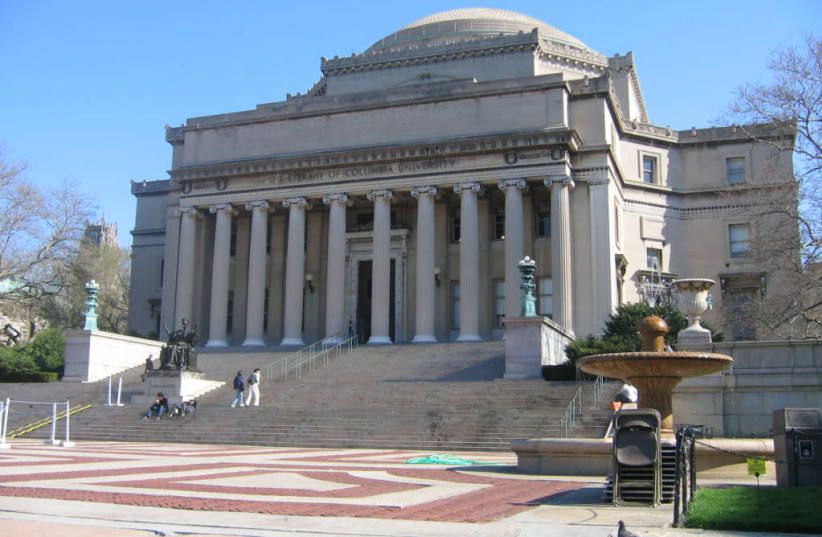The Columbia Journal of Transnational Law (CJTL), Columbia University’s pioneering journal in international law, recently announced that it will bestow its annual Wolfgang Friedmann Memorial Award upon Judge Navanethem “Navi” Pillay, the former UN high commissioner for human rights. What could be wrong with that?
Pillay has indeed made outstanding contributions to the field of international law. She successfully and laudably advocated for women and minority groups. She helped bring justice to the victims of the Rwandan Genocide and she rose to global prominence after overcoming the daunting challenges of being born into South Africa’s brutal apartheid regime.
But Pillay’s laudable achievements are tarnished. She has undermined fundamental principles that Friedmann championed, namely functional international governance guided by general principles of law as decided by impartial arbiters and the due process of law.
Professor Wolfgang Friedmann was born in Berlin, in 1907, where he earned his doctorate and served as a court official. He was a man of immense will: When Nazi stormtroopers entered his courtroom demanding harsher penalties for accused criminals, he refused.
He was later relieved of his post and forced to flee to England, in 1934. Friedmann devoted the rest of his life to the study and development of international law and legal institutions. Only days before his tragic death in 1972, Friedmann found the additional motivation to advance the causes of law and reason in his shock at the brutality with which Palestinian Black September terrorists executed members of the Israeli Olympic team, including one of his former students.

Some 50 years later, Pillay chairs a three-member Commission of Inquiry established via Resolution on May 27, 2021, tasked with investigating recent Israeli-Palestinian violence in the region and the root causes thereof. Despite the ample evidence of her prejudged opinions on both the specific and general points of the COI’s mandate, she has failed to recuse herself from the Commission of Inquiry.
Pillay has violated the sine qua non of fact-finder impartiality, i.e. freedom from a commitment to a predetermined outcome or the appearance thereof. Notably, in the announcement of the award, the Columbia Journal of International Law cites only her post as the United Nations commissioner for human rights and does not mention the Commission of Inquiry she chairs.
As UN high commissioner for human rights from 2008–2014, Pillay oversaw and repeatedly defended the 2009 Durban Review Conference (Durban II), where Iranian President Mahmoud Ahmadinejad, a vocal Holocaust denier, was given the floor and stated that World Zionism personifies racism. In the aftermath of Durban II, Pillay accused an unidentified lobby of ganging up together to boycott the conference and discredit its achievements.
Pillay defends the Palestinians even with all the evidence
As high commissioner, Pillay also stridently defended the UN Human Rights Council’s standing agenda Item 7, under which the Israeli-Palestinian conflict is the only country or situation-specific world issue that the Council must address in every session it holds.
When, in August 2014, the United States Congress committed $225 million (NIS 819 m.) in funding to refurbish Israel’s Iron Dome short-range rocket-interception system, Pillay criticized the United States for failing to provide Gazans with the same technology. Her criticism implied that the US should fund a foreign terrorist organization. She overlooked Hamas’ generous funding from countries including Iran and Qatar, and Hamas’s deliberate negligence in protecting its own citizens.
And as recently as 2021, Pillay signed a letter decrying Israeli actions “against peaceful protesters and worshippers at al-Aqsa Mosque,” ignoring ample evidence that these so-called worshipers had hurled stones and Molotov cocktails.
Thus far, Pillay’s Commission of Inquiry has issued two severely biased reports, in June and October 2022, earning widespread condemnation. But Pillay was quick to defend fellow Commissioner Miloon Kothari when he publicly questioned why Israel is even a member of the UN and he blamed the Jewish lobby for attempting to discredit the COI.
The Columbia Journal of Transnational Law bears a foundational and ethical obligation to honor Friedmann’s legacy and perpetuate his vision and awarding Pillay in Friedmann’s name would desecrate his memory. It is only appropriate to protest such a breach of trust.
The writer is a third-year student at Columbia Law School and a member of the student board of editors of the Columbia Journal of Transnational Law.
